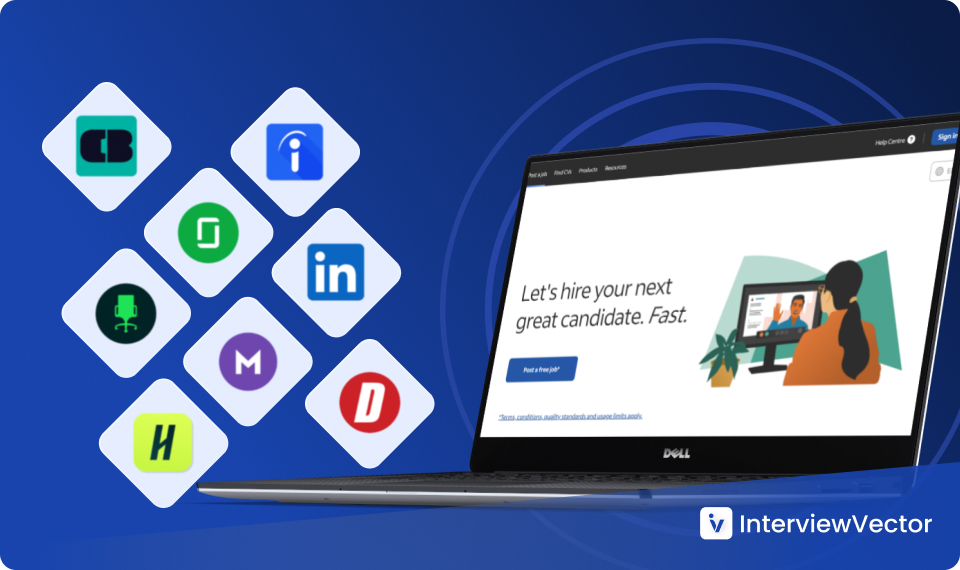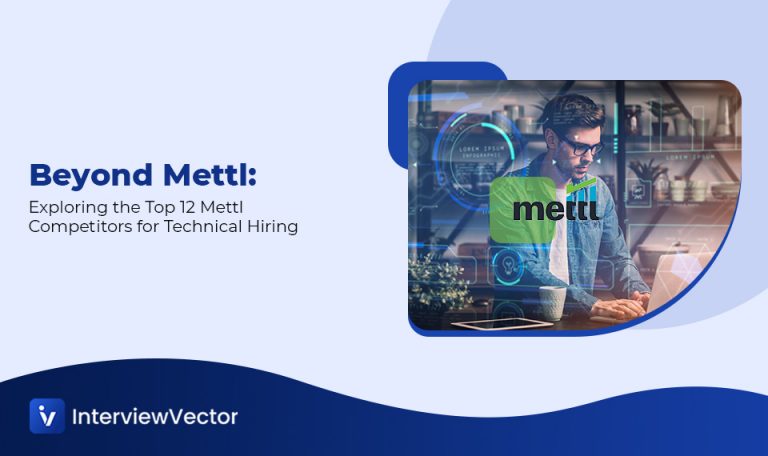Introduction
In the ever changing world of human resources, job portals have revolutionized the way HR professionals acquire talent. The days of depending exclusively on in-person meetings with recruitment officers or submitting resumes locally in the hope of a response are long behind us; digital platforms have now emerged as vital tools for filling positions in today’s corporate landscape.
The advent of popular job sites in USA has addressed one of the most pressing challenges in HR: efficiency in finding the right talent. In today’s world where time is of essence, these platforms have simplified the recruitment process for HR teams to cast a wider net and focus on a particular skill set and experience levels. What job portals have done is centralize the location for job listings, candidate profiles, and application management, all of which were otherwise time and resource consuming.
What’s more, these platforms have democratized the job market, making it possible to see the same opportunities regardless of the industry or level. This means for HR professionals, a deep pool of candidates, from entry level to executive, all at a few clicks. Today, posting a job opening, filtering applications and communicating with potential candidates has become an easier, faster, more strategic, and data driven process than it was in the past.
With a deeper understanding of the world of job portals, we will also look at how job portals have evolved, their contribution to modern recruitment strategies and how HR professionals can make the most of job portals to navigate the complexities of modern recruitment.
What is a Job Portal?
A job portal is an online platform that connects job seekers with employers. It serves as a digital marketplace where companies post job openings, and candidates apply based on their skills and experience. The job portals provide job candidates with technology-based search filters, resume-building assistance and automated job-matching functions to accelerate their recruitment operations.
Employers gain access to extensive candidate pools and, at the same time, candidates receive targeted job recommendations. The platforms offer career advice, organizational overviews and interview preparation materials to their users. The recruitment process becomes efficient through popular job portals including LinkedIn Indeed and Glassdoor which help employers discover new talent and candidates discover their ideal positions.
Evolution of Job Portals: From Basic Boards to AI-Driven Tools
Job portals are a journey of how technology has improved and how the recruitment industry has evolved. Once simple digital equivalents of newspaper classifieds, what were they now evolving into: sophisticated platforms driven by artificial intelligence and big data analytics?
In the early days, job portals were little more than online bulletin boards wherein employers would post job openings and job seekers would browse listings. They provided a wider reach than traditional methods, but did not have the advanced features. The capabilities of these portals only grew along with internet adoption.
The second phase introduced search functionality and some basic filtering options that allowed users to filter by location, industry and job title, etc. among other things. This was a big improvement for employers and job seekers alike in the user experience and efficiency.
With passage of time, the features being used in the best job portals in USA were getting more sophisticated. Automatic extraction and categorization of information from uploaded resumes was now possible using resume parsing tools. This application development simplified the process for the candidates and for the HR professionals to sort and manage applications as well.
The second big step forward was the integration of applicant tracking systems (ATS) into job portals. What these systems enabled HR teams to do was manage the whole recruitment process—posting jobs, scheduling interviews and making offers—on one single platform.
AI driven job portals are currently on the rise today. Using machine learning algorithms, these cutting edge platforms use these factors to match candidates with job openings. Chatbots are commonplace today, powered by AI to respond instantly to candidate queries, and even screen candidates.
In addition, predictive analytics are being done to predict upcoming hiring needs, uncover potential deficiencies in skills or presentable as candidates, and predict candidate potential success in one specific role. This evolution has made popular job sites in USA from passive job boards to proactive talent acquisition tools capable of revolutionizing the strategic abilities of HR departments.
The evolution of job portals only seems to be gaining momentum as we look to the future. The combination of virtual reality for job previews, blockchain for credential verification and more advanced AI applications will see these platforms continue to lead the way in recruitment technology.
16 Best Job Portals for HR Professionals
Among the vast realm of online recruitment tools, some job portals are more efficient than others and offer features customized to the HR professionals. Here’s a breakdown of some top US job portals, each catering to different recruitment needs.
Best for: The professional and executive roles
Key features: InMail for direct candidate outreach, company pages, vast professional network and robust search filters
HR tools: LinkedIn Recruiter, how to manage your talent pipeline, and insights on candidate behaviour.
Indeed
Best for: Hiring across various industries and job levels
Key features: A resume database, company reviews and salary information.
HR tools: Indeed is a Hiring Platform for end to end hiring, sponsored job postings and candidate screening questions
Glassdoor
Best for: Attracting informed candidates and employer branding
Key features: Salary information, company reviews and interview insights
HR tools: Targeted job advertising, enhanced employer profiles and branding solutions
ZipRecruiter
Best for: If you are a small or medium sized business looking for an efficient way to hire staff, then this is for you.
Key features: Job matching powered by AI, one click job posting to multiple sites.
HR tools: TrafficBoost for more job visibility, candidate pre-screening options
Foundit
Best for: Recruitment on a high volume basis and specialized recruitment.
Key features: Resume database, job posting templates and behavioral assessment tools
HR tools: TalentBin for sourcing passive candidates, SearchMonster for advanced candidate searching
CareerBuilder
Best for: Companies with diverse hiring needs, mid sized to large
Key features: Labor market data, AI powered job matching
HR tools: candidate relationship management, Talent Discovery Platform
Dice
Best for: Tech-focused recruitment
Key features: IntelliSearch for candidate matching and tech skills based searching
HR tools: Sourcing tech talent, precision matching algorithms
Handshake
Best for: Especially for college graduates and entry level and early career recruitment
Key features: Virtual career fairs with direct connection to university career centers
HR tools: Outreach to most recent graduates, and event management for campus recruiting.
Job2Careers
Best for: General job seekers across industries
Key features: AI-driven job matching, a wide network of job listings
HR tools: Aggregated job postings, targeted job alerts
Nexxt
Best for: Niche recruitment across industries
Key features: Candidate segmentation, targeted job advertisements
HR tools: AI-powered sourcing, recruitment marketing solutions
Resume-Library
Best for: Large-scale resume database access
Key features: Millions of resumes across industries, automated job posting
HR tools: Resume search, applicant tracking system integrations
Snagajob
Best for: Hourly and part-time job recruitment
Key features: Mobile-friendly job search, instant interview scheduling
HR tools: Candidate matching, workforce management solutions
US.jobs
Best for: Government and veteran job seekers
Key features: Verified employer postings, state workforce partnerships
HR tools: Diversity hiring support, compliance with federal hiring standards
TheMuse
Best for: Employer branding and talent attraction
Key features: Company insights, career advice, and job listings
HR tools: Employer branding, culture-focused job postings
America’s Job Exchange
Best for: Diversity recruitment and compliance hiring
Key features: Online diversity job advertising, access to minority job boards
HR tools: OFCCP compliance solutions, targeted outreach programs
LiveCareer
Best for: Resume building and career resources
Key features: Extensive job listings, resume and cover letter templates
HR tools: Resume database, candidate career support
Each of these platforms offers unique tools for HR professionals:
- Candidate Management Systems: Nowadays, most popular job portals in USA have ATS functionalities which allow HR teams to keep track of applicants all the way from their application to offer.
- Job Ad Optimization: Platforms like Indeed and ZipRecruiter use AI to make suggestions to job descriptions to help them attract the right candidates and to rank well in search results.
- Industry-Specific Features: For example, Dice is a tech specific skills assessment and Handshake is a tool for campus recruitment.
- Data Analytics: LinkedIn and Glassdoor can give us in depth information about candidate behavior, market trends, and competitor analysis to help us with data driven recruitment strategies.
- Employer Branding Tools: Glassdoor as well as LinkedIn provide more enhanced company profiles with targeted advertising options to help businesses show their culture and value.
HR pros who embrace different recruitment platforms truly enrich themselves with knowledge of each platform’s strengths and know how to use each of their own tools to create a holistic recruitment strategy that handles many different sets of hiring requirements for different roles and industries.
Leveraging Job Portals for Effective Recruitment
HR professionals must change the ways they approach job portals; and posting job listings is not enough to maximize the potential of these job portals. Here are some tips for leveraging these platforms effectively:
- Utilize Advanced Filters
- Use detailed search criteria to zero in on a candidate pool just for you.
- You can make your search more specific by using boolean search operators.
- Save searches regularly to stay up to speed on new matching candidates.
- Optimize Job Postings
- Write clear, simple job titles that people use when looking for jobs.
- Maintain a good level of searchability by including relevant keywords throughout the job description.
- Find unique selling points of the role and company to make you stand out.
- Targeted Advertising
- A sponsored job feature on platforms to make it easy to get your critical roles in front of their largest audience possible.Try out different ad formats and placements to see what sells best.
- Retargeting campaigns to re-engage candidates who have shown interest.
- Use Candidate Data Insights
- You’ll want to analyze applicant data to find out which channels are best and how that shifts depending on the type of role they’re applying to and use these insights on candidate behavior to optimize job descriptions and application processes.
- Engage measures to refine your outreach tricks.
- Engage Passive Candidates
- LinkedIn’s InMail or Indeed’s Resume Search can be used to contact potential candidate who aren’t actively job hunting.
- Use previous applicants or sourced profiles, to create talent pools, for future opportunities.
- Use AI-Matching Technology
- Use AI powered matching algorithms to find best fit candidates quickly.
- These tools will help you surface candidates you may have missed during your traditional search.
- Enhance Employer Branding
- Always keep your company profile on job portals fully complete and updated.
- Ask your employees to leave reviews on Glassdoor or some other platform to make it more authentic.
- Technical interviews are simpler
- If you’re looking at technical roles, you might want to use something like InterviewVector for technical interviews as it can help free up technical bandwidth by handling all your technical interviews and providing the right candidate for the job.
- InterviewVector is a tool and resource for HR professionals to assess candidates’ technical skills accurately, and complement the candidate sourcing capabilities of job portals.
Strategies such as these shortening time to hire and increasing reach can significantly improve your organization’s recruitment for both efficiency and wider pool of candidates. Using a job portal and specialized tools like InterviewVector for technical assessments in combination can build a powerful, complete recruitment process that responds to the requirements of a modern competitive talent market.
Future Trends in Job Portals for Recruitment
The job portal landscape is always on the move in the wake of technological evolution and changed workforce scenarios. Here are some key trends shaping the future of these platforms:
Integration of enhanced AI and Machine Learning
And that is that in the future AI will grow more sophisticated in matching candidates to jobs, looking not just at skills and experience, but also at cultural fit and career trajectory. Predictive analytics will allow organizations to predict hiring needs and gaps in skills.
AR and VR Experiences
VR could be used by job portals in USA like virtual office tours or job shadowing experiences. AR could be used to make job descriptions more interactive, with AR being used to add interactive elements to the description to an unparalleled degree, making it easier for candidates to get the feel of a role in its entirety rather than just the text itself.
Credential Verification using Blockchain
There are a number of ways in which blockchain technology could be used to create tamper proof records of educational qualifications, work history and skills certifications. It would make the verification process easier and eliminate fraudulent applications.
Personalized Career Pathing
The career planning tools on job portals are likely to be more sophisticated, suggesting personalized learning paths and guaranteeing career trajectory (based on candidate’s profile).
Advanced Gig Economy Platforms
With the gig economy expanding, job portals in USA will offer more advanced features for freelancing and contract work. The advanced features will include job matching based on projects and integrated payment systems.
More Complex Employer Branding Features
With advanced employer branding, this feature will have employee-generated content and real-time culture insights.
Voice-Activated Employment Search and Application Process
Very soon, voice-assisted technology will enable one to search and apply for a job just with his or her voice.
Range and Diversity
Job portals would introduce sophisticated tools to assist an organization achieve hiring diversity goals while decreasing unconscious biases in the recruitment process.
Gamification of Skills Assessment
In the near future, perhaps an interactive, game-like assessment may be more possible when the skills and problem-solving skills of the candidates are being assessed.
Integration with professional development platforms This can also be achieved by popular job sites in USA in partnership or integration with learning platforms that help candidates upskill directly through the portal based on demands in the job market.
These trends suggest that, in the future, a job portal will be much more than a meeting place between the employer and the job seeker. In the near future, these job portals will evolve into a comprehensive career development ecosystem, making use of technologies and innovations in the recruitment experience to become more efficient, more accurate, and much more personalized.
Conclusion
As HR professionals, effectively leveraging job portals can indeed transform the landscape of today’s fast-paced hiring environment. By employing advanced tools, targeted filters, and data-driven insights, you can streamline the recruitment process, attract top talent, and significantly reduce the time-to-hire.
Choosing the right job portal not only expands your reach but also enhances candidate engagement, making it an essential component of your overall hiring strategy. To stay ahead of the curve, consider integrating services like InterviewVector Interview-as-a-Service (IaaS), which complements job portals by providing expert-led evaluations, further optimizing your recruitment process for the ever-evolving landscape of talent acquisition.














